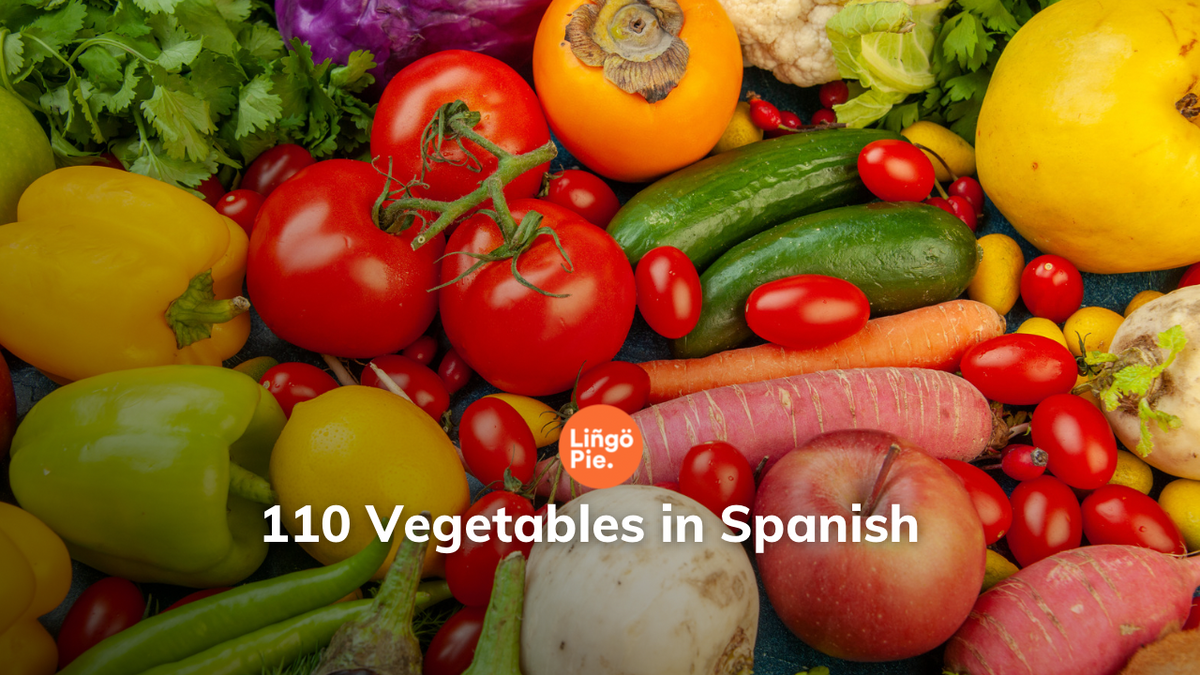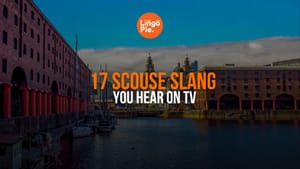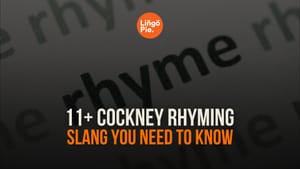While slang has been a fixture of language for generations, the rise of social media has catapulted its potential for "going viral" to new heights.
For international college students and young people navigating the complexities of the English language spoken in the US, the meaning and usage of American slang words and phrases can be a big challenge.
So, being aware of current slang used by native speakers that you won't hear during your English lessons is essential for effective communication and cultural integration.
In this guide to American slang in 2024, we aim to provide clarity and insight into the latest linguistic trends in casual speech, offering examples and practical tips for incorporating these expressions into your everyday conversation.

Who Uses American Slang Words and Why
Slang words are mostly used by younger generations, who are currently the demographic that tends to bring the most noticeable changes in the English language.
Just as young people all over the world, youngsters in the US use American words and phrases to assert identity and communicate in a way that resonates with their peers.
Gen Z is particularly keen on creating and adopting new phrases as a form of cultural currency, reflecting their desire for authenticity and individuality within a rapidly changing world.
Learning different slang words can make social integration easier, strengthens bonds, and helps navigate informal interactions in certain contexts, both online and offline.
Using slang terms in casual situations is a means of staying relevant and connected in a dynamic linguistic landscape, where mastering the latest slang means being able to speak the language of one's social tribe.
Now let's see what is popular today.
1. Legit
"Legit" is an adjective abbreviated from "legitimate," so the word means that something is authentic or genuine.
For example: "The tacos at that food truck are legit; they're made with authentic Mexican chilis." or
"His excuse for being late sounded legit; he had a flat tire and showed us a picture as proof."
2. Vibe Check
This phrase is more than just asking someone how they're feeling; it's about assessing the overall atmosphere or energy of a situation. It looks like this phrase started as one of the New York slang words but nowadays it's everywhere.
This is one of the common slang words you can use whether you're entering a room or starting a conversation, a vibe check ensures you're on the same wavelength as the other English speakers around you.
3. Riding shotgun
"To ride shotgun" is an idiomatic expression in American slang that originated from the old American West, where the person sitting next to the driver of a stagecoach was tasked with carrying a shotgun to defend against potential attackers.
Today, it simply refers to the person occupying the passenger seat in a car.
4. Vanilla

"Vanilla" as an adjective is used to characterize something as mundane, dull, or lacking in excitement, drawing upon the perception of vanilla ice cream as a standard, unremarkable flavor.
Example: "I thought the movie would be more thrilling, but it turned out to be quite vanilla." Example: "Her fashion sense is usually so vibrant, but today's outfit is a bit vanilla."
or "The team's performance in the game was disappointing; their strategy seemed vanilla compared to their usual dynamic plays."
5. Epic fail
This is an informal expression used to describe a complete disaster or a situation that has gone horribly wrong. It is often used humorously to emphasize the magnitude of failure.
Example: The attempt to bake a cake turned into an epic fail when the oven malfunctioned and burned the entire dessert.
When it's not part of this phrase though, you can use ''epic'' in a positive way to say "cool'', just as slang terms like "wicked" or "sick" in British slang.
6. Low Key
"Low key" is a versatile phrase used to describe something that is done or felt in a subtle or restrained manner.
For example, if someone wants to keep their plans for the weekend simple and relaxed, they might say, "I'm feeling low key this weekend; maybe just a quiet night in with a movie."
7. Totes
"Totes" is a shortened version of "totally," and one of the American slang words used to express agreement with someone's statement or suggestion.
Example: Person 1: "Let's grab some pizza for dinner tonight."
Person 2: "Totes, I'm craving pizza."
Example: Friend 1: "I should finish my assignment before I can play video games.”
Friends 2: “Totes.”
8. Vibing
Enough with the vibes already, right? Well, no. But only positive vibes while learning here.
Similar to "vibe check," "vibing" refers to being in sync or enjoying the same energy as someone _or something else.
For example, I can give my best friend a ''vibe check'' at a party by asking how they're doing because I have noticed they have been feeling down lately.
9. Whiz
"Whiz" is a term used to describe a smart person and show you are impressed by someone's intellect or cleverness.
Example: "Tommy is a math whiz; he always aces his exams without breaking a sweat."
"She's a computer whiz; she can troubleshoot any tech problem in minutes."
"Our team needs a marketing whiz to come up with a creative campaign for the new product launch."
10. Lit

"Lit" is an adjective commonly used to describe something that is exciting, energetic, or outstanding in a positive manner. It implies that an event or experience is going to be exceptionally enjoyable or memorable.
For instance, when referring to a party, concert, or social gathering, saying it's "That concert was lit" suggests that it was fun and filled with positive energy.
11. Such a bummer
"Such a bummer" is an expression used to express empathy or sympathy when someone is experiencing a difficult or disappointing situation. If you say that something is "a bummer," you mean that it is unpleasant or annoying.
Some examples are: "I heard Jane didn't get accepted to her dream college. That's a bummer."
"The weather forecast for the picnic is rain all day. What a bummer."
12. Being woke
Being "woke" is defined in American English slang as "conscious of and actively engaged with significant facts and matters (particularly those concerning racial and social justice)."
The roots of this phrase can be traced back to African American English and gained broader acceptance around 2014, coinciding with the rise of the Black Lives Matter movement.
Towards the end of that decade, it began to be used disparagingly by some to characterize a person who is perceived as politically left-leaning.
13. Spill the tea

This phrase is used to encourage someone to share gossip or spill secrets.
Example: "Girl, spill the tea about what happened at the party last night!"
14. iykyk ("if you know, you know")
This abbreviation is used to imply that something is understood or appreciated only by those who are familiar with a particular reference or situation.
Example: "That inside joke was hilarious, iykyk."
15. Bet
This slang term is used to express agreement, confirmation, or understanding.
Example: "We're meeting at 7, right?" "Bet"
16. ATE
This term is slang for "eaten," but it's often used metaphorically to describe someone's impressive performance or actions. It's like acknowledging that someone did something so well that they metaphorically "ate" it up. Whether it's acing a test or delivering a killer comeback, when someone says "ATE," they're giving props to someone's excellence.
17. Rizz
Rizz, originating from "charisma," describes the captivating charm and allure a person exudes. Its pronunciation mirrors its spelling, "rizz." This slang term gained traction among teenagers on platforms like TikTok and various social media channels. Rizz isn't solely about physical attractiveness; it encompasses the ability to mesmerize others with one's personality and presence.
18. It’s giving
This phrase is used to describe a situation or appearance that is reminiscent of a particular vibe or aesthetic.
Example: "That outfit is giving major '90s vibes."
19. Gas him up

This expression means to give someone praise, encouragement, or compliments to boost their confidence.
Example: "Don't forget to gas him up before his big presentation."
Regional Varieties
While the internet and pop culture have popularized common slang words nationally and globally, regional variations persist. For example, the Californian slang words and phrases used at the University of the Pacific in California may differ from that at UMass Boston. You will also notice that the same slang word may have different meanings in different places.
Chicago slang words
"Frunchroom" refers to the front room of a bungalow or flat, typically positioned overlooking the street. This space often houses the family's finest furniture but is primarily reserved for entertaining guests or unwrapping Christmas presents.
"Gangway" denotes a sidewalk situated between two houses in a narrow space. For instance, a witness might inform a police officer that they saw a fleeing individual running through the gangway.
Here are some common New York slang terms:
"Schmear" refers to a generous spread of a condiment, typically cream cheese on a bagel. For New Yorkers, starting the day with a schmear is a popular breakfast ritual.
"Sus" - short for "suspicious," this term is used to describe something or someone that seems questionable or distrustful. New Yorkers might use "sus" when assessing a situation or expressing skepticism.
"Yas/Yaaas" - an expression of excitement or approval, often accompanied by exaggerated enthusiasm. New Yorkers might shout "yas" or "yaaas" to celebrate a victory, express joy, or show support for something they find thrilling.
FAQs Relating to American Slang
In this section, we provide answers to common questions relating to American slang words.
What are some American slang words?
All you need to do to find out this one is to go back and read the whole text but our favorite is Delulu. Sus is taking second place. But, this is not objective.
What is the most popular Gen Z slang word?
Currently, the most popular Gen Z slang word is "delulu," denoting delusional thinking or behavior, commonly used to dismiss unrealistic or irrational ideas.
What is the most used slang?
Among Gen Z, common slang includes "to rip off" (To steal), "No biggie" or "No big deal" (It's not a problem), "a party animal" (someone who really loves parties), ''to dump someone'' (To end a romantic relationship), or "going dutch (When eating out, each person pays for their own food).
How do you say OK in American slang?
In American slang, "OK" might be expressed as "cool," "bet," or simply "OK," signaling agreement or approval in informal settings. The most popular one was "bet".
What are some New York slang words?
In New York, you'll often hear locals using colorful American slang that reflects the city's unique culture and lifestyle.
For instance, "schmear" is a slang term used to describe a generous spread of cream cheese on a bagel, "Van Wyck," refers to the highway that provides access to JFK airport, and "AirTrain" refers to the convenient light rail system connecting the subway to JFK.

Summing up: American Slang Words to Know in 2024
Getting the hang of popular slang words goes beyond just memorizing a literal definition; it's about diving into the heart of everyday language. Whether you're a college student or just someone curious about modern culture, getting the gist of these terms offers a window into American lifestyle.
Learning with Lingopie isn't about rote memorization; it's about getting real exposure to how people talk in everyday situations where these slang terms naturally pop up.
So, dive in headfirst and before you know it, you'll be blending in like a pro, whether you're hanging out on the West Coast or gaming with your buddies.
Learning American slang words and phrases is all about getting a feel for the pulse of modern culture, and it's something you definitely want to be part of.








![20+ Gen Alpha Slang And What They Mean [Guide]](/blog/content/images/size/w300/2025/06/Gen-Alpha-Slang.jpg)
